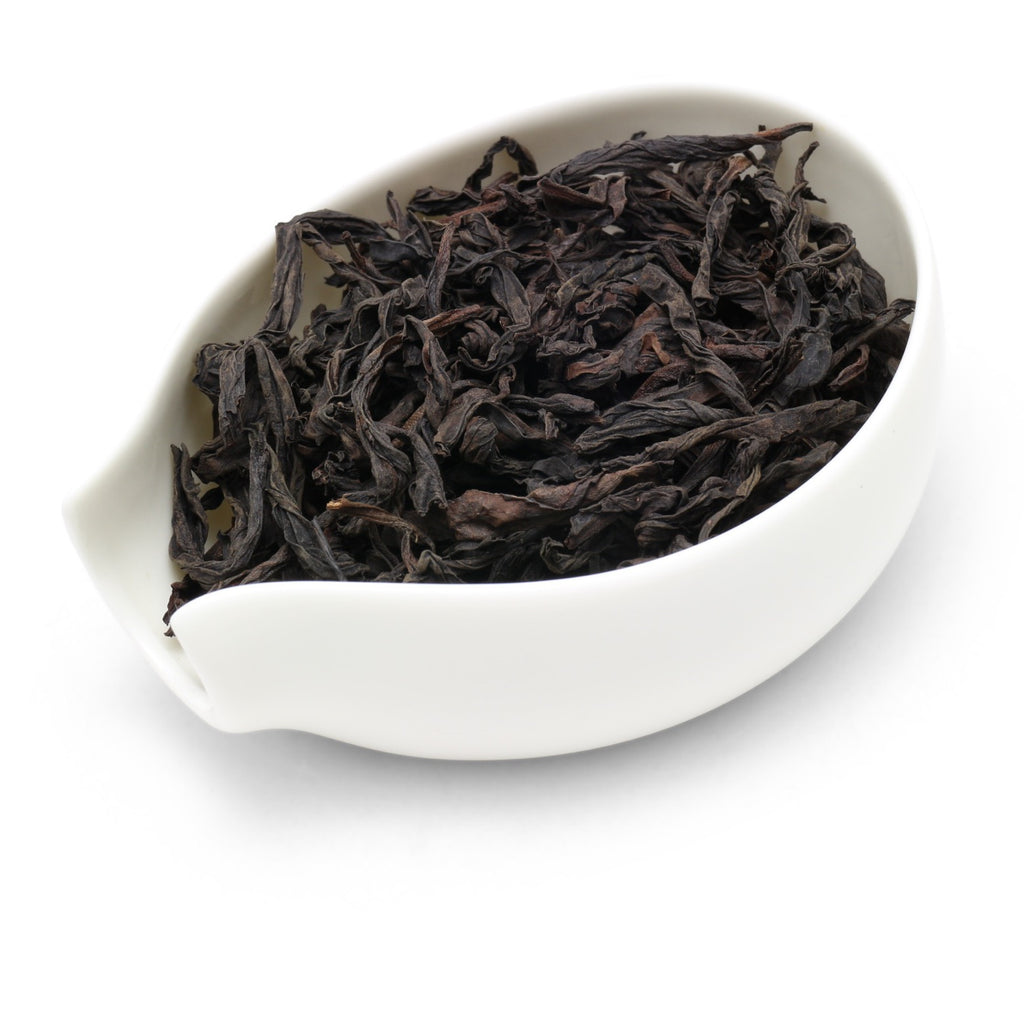Wusandi Laocong Shui Xian
Poetry can push language beyond its boundaries, expressing something that mere words alone cannot. Something similar happens with yan cha and the concept of yan yun, not by chance borrowed from poetry and often translated as “rock rhyme.” A good yan cha comes from quality material and skillful technique, resulting in pleasant flavors and aromas. A remarkable yan cha may carry those very same flavors and aromas, but, like the words of a good poem, they exist in such marvelous harmony that they leave a lasting impression on the drinker. That is yan yun, and this Shui Xian from the wild, unpruned old bushes of the misty Wusandi village is a beautiful expression of it.
Already welcomed into the Nannuoshan Hall of Fame last year, this new batch lives up to its predecessor, revealing itself as a masterpiece of balance. The first steep yields a smooth, thick liquor with an aroma of warm oak, reminiscent of a cozy library. From within this enveloping woody profile, almost as if in response, more pungent spicy fragrances seem to arise, akin to the blend of an aromatic spice cake, bringing movement and vitality to the cup. As the session unfolds, the mouth becomes progressively coated with deep mineral tones, complementing the sweetness of a strong, long-lasting loquat aftertaste, which seems to gather warmly in the chest and rise to the nose with every breath.
Wood, spices, and stone fruits, the classic profile of a Wuyi-roasted Shui Xian, elevated by an elegant interplay of complementary nuances into an experience that speaks to all the senses. A wordless poem about what tea can become.
Written by Simone
- ORIGIN: Wusandi, Wuyishan, Nanping, Fujian, China
- MEANING: Old bush water sprite from Wusandi (wu san di lao cong shui xian)
- CULTIVAR: Shui Xian
- HARVEST TIME: May 2023. Reroasted in October 2024
- TASTE: Oak, spice cake, loquat
- Quantity: 6g / 500ml
- Water temperature: 90°C
- Infusion time: 5 min
- Quantity: 3g / 100ml
- Water temperature: 90°C
- 4 infusions: 45, 60, 60, 90 sec
For best results in gongfu cha, brew in the traditional gaiwan or in a Yixing teapot. Too high water temperature would burn the leaves, resulting in bitter taste.






